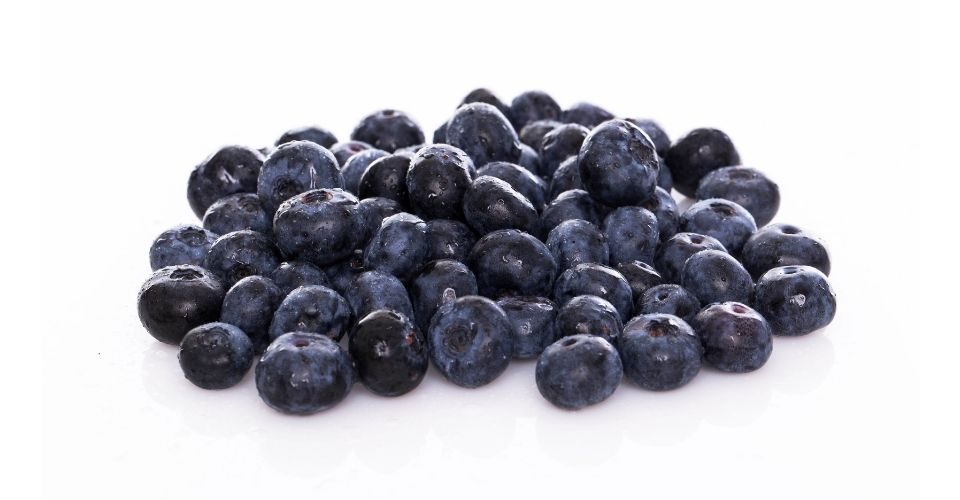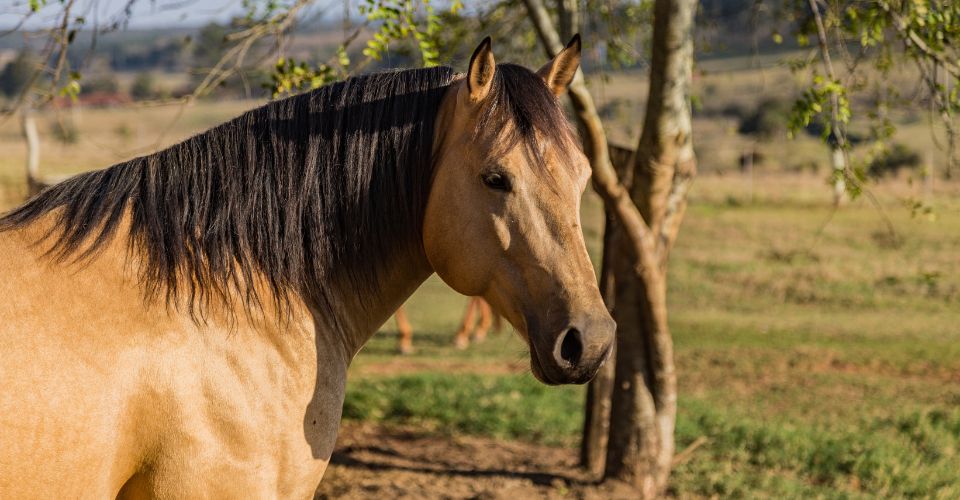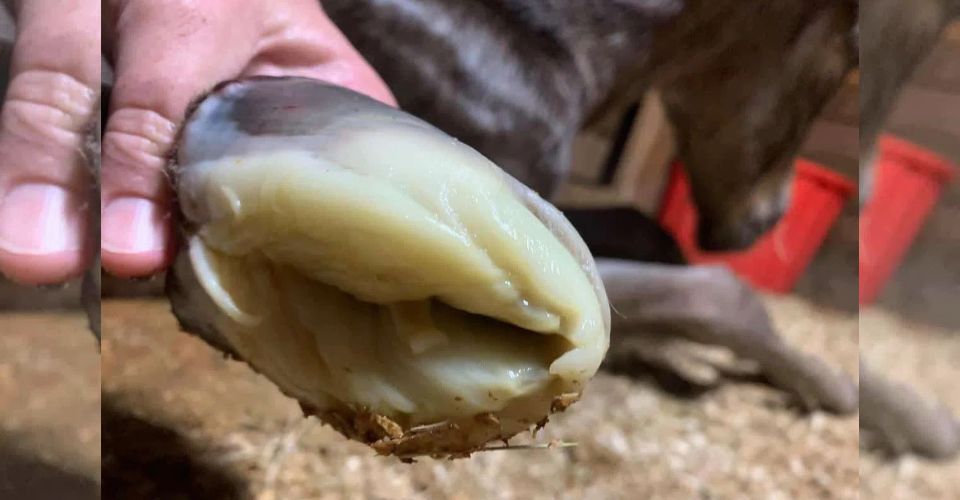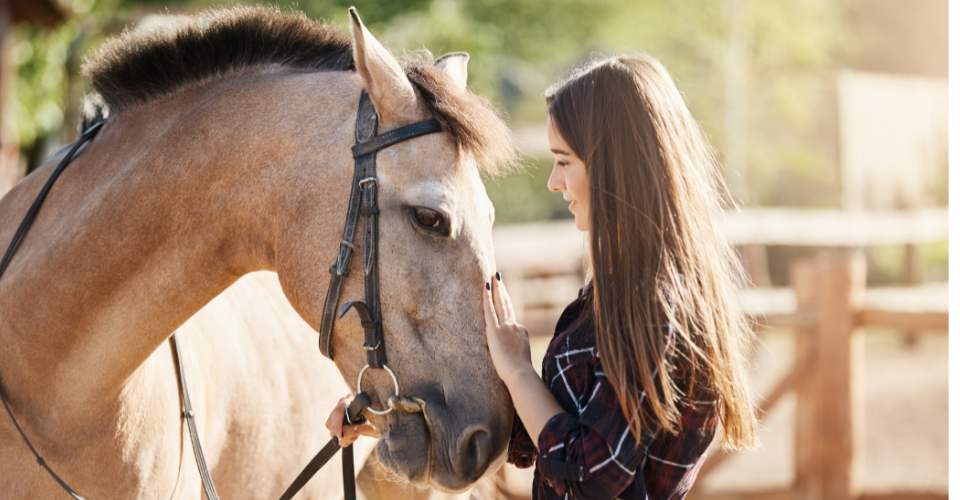Often called a superfood, blueberries make a perfect snack for humans – they taste great, can be eaten in a large number, have a long shelf-life, and above all, they are loaded with some of the most important nutrients. Hence, you might not have any sort of qualms about incorporating this valuable fruit into your diet. But is the same acceptable for your four-legged friend as well? Can horses eat blueberries? What are the health benefits? Are there any disadvantages? We will find the answers to these questions and much more in this blog.
Let us gallop to it.
Did You Know?
With over 30 different species, humans have been eating blueberries for more than 13 millennia.
Read: What Do Horses Eat?
Can Horses Eat Blueberries?
Yes, horses can eat blueberries. Blueberries are not only safe but also offer a lot of nutritional and health benefits. Besides being healthy, it is a low-calorie and delicious diet that equines enjoy much. Nonetheless, there are some potential disadvantages as well that stem from overfeeding.
Keep reading to find out the health benefits of blueberries and how to feed blueberries to horses to keep potential risks at bay.
Do Horses Like Blueberries?
Like most other fruits, horses love blueberries. Once you share this heavenly fruit with your equine friend, you will have him always wanting for more – craving for more of it with each passing day because of its delicious taste.
However, be cognizant of the fact that you do not have to cave in and start fulfilling your steed’s desire in an uncontrolled way by ignoring the associated risks. Like other horse treats, feeding blueberries in excess also leads to a series of health issues in horses.
What Are the Health Benefits of Horses Eating Blueberries?
Blueberries have to offer numerous health benefits to horses. Have a look at the advantages discussed below:
Immunity
Blueberries work wonders for the immune system in horses. For instance, they contain pterostilbene, a compound that increases the energy levels of Cathelicidin Antimicrobial Peptide (CAMP), a gene that plays a role in enhancing immunity in both animals human beings. Likewise, blueberries are also known to strengthen horses’ connective tissues, equipping them to fight off pathogens entering the body.
Additionally, the anti-inflammatory properties in blueberries help horses with inflammation-related injuries.
Cardiovascular Health
Thanks to the presence of antioxidants, blueberries can keep the cardiovascular health of horses intact. Besides, they are also known for significantly reducing the risk of heart diseases in horses.
Cancer Prevention
The antioxidants present in blueberries also keep cancer and tumors at bay. They work by eliminating the free radicals, which are responsible for developing cancer when present in a large number. Free radicals damage all main components in cells, including the DNA, which leads to serious complications.
Gut Health
The anti-inflammatory and antioxidant components are important for horses with gut issues; luckily, they are available in blueberries. Antioxidants protect the linings of the gut, which does not let bacteria and other toxins leak into the intestinal walls. Besides, blueberries are also advantageous for horses struggling with indigestion and diarrhea.
Did You Know?
Blueberry is among the top fruits with antioxidant health benefits. A single cup of it has about 13,427 antioxidants – 10 times more than the United States Department of Agriculture (USDA)’s recommendation!
Vision Protection
Blueberries can improve vision in horses by protecting their retina. In addition, the blood circulation around the eyes is also enhanced. They are especially helpful for horses recovering from certain types of eye injuries and diseases.
Low Risk of Obesity
Blueberries are low in calories and thus do not let a horse put on extra weight. Similarly, they have high fiber content, making equines feel full and satisfied. Likewise, blueberries also do not contain much sugar, which helps in preventing diabetes besides keeping additional weight gain at arm’s length.
Nutritional Value
Blueberries are leaded with a number of favorable vitamins and minerals, which play an important role in maintaining horses’ overall health. Some of them, along with their advantages, are:
- Vitamin A: It supports a healthy reproductive system.
- Vitamin B2: It is vital for the efficient metabolism of proteins, carbs, and fats.
- Vitamin C: It keeps equines healthy during the time of stress.
- Calcium: Besides the obvious benefits for bones, it is known for blood clotting and enzymes regulation as well.
- Iron: It is important for the transportation of oxygen in a horse’s body.
- Magnesium: It is necessary for hoof health and the prevention of laminitis.
- Manganese: It stimulates bone growth and antioxidants production.
- Phosphorus: It is essential for energy transfer and DNA synthesis.
- Potassium: It regulates the osmotic pressure in cells.
What Are the Risks of Horses Eating Blueberries?
Firstly and fortunately, blueberries do not contain any poisonous material, making them perfectly fine for consumption; however, despite this advantage, they do not go well if fed in excess.
For instance, as in the case of other fruits, the equine digestive system can be disrupted if a lot of blueberries are ingested, which may lead to several serious problems such as colic – a common equine illness that results in abdominal pain, problems in digestion, increased heartbeat, and reduced appetite. Furthermore, if left untreated, it can be fatal. Though it can be treated with medication, in severe cases, surgery is the only solution.
Also, note that though blueberries are low in calories, overfeeding can still lead to weight gain. Additionally, an excess amount and hasty eating may cause choking. That is why, since horses eat blueberries without any tantrum, you should be especially careful while feeding this fruit to your horse to make sure he does not overeat.
Similarly, almost all fruits contain sugar, and blueberries are no exception. Though they are not much sugary, blueberries are a big no-no if your equine friend is diabetic.
What Quantity of Blueberries Is Too Much for Horses?
Given the small size of blueberries and large size of equines, it would take an insane amount of blueberries to make horses sick. However, horse owners are strongly advised to limit the number of blueberries for horses. You should never give more than 8 to 12 blueberries per day to your horse.
That said, if your horse has never eaten blueberries before, it is recommended that you start with one or two blueberries. And if berries seem to sit well with your horse’s stomach, you can gradually increase the number of blueberries. If your horse loves blueberries, he would appreciate some strawberries as well. But keep in mind that moderation is the key here.
How to Feed Horses Blueberries?
Blueberries are equally safe, healthy, and beneficial for horse consumption. Moreover, it is not that you have to force your horse into eating blueberries; instead, just adding a few innovative ways can let your horse enjoy them more and extract the maximum amount of benefits.
- Cut the berries into two or more pieces. It can reduce the risk of choking.
- Mix them with chia seeds or oats for extra nutrition and energy.
- Mix them with the traditional favorites of horses – apples, strawberries, and carrots – to make the treat interesting.
- Add frozen blueberries as well. It might surprise you, but horses do love frozen fruits a lot.
- You can also go for blueberry biscuits and energy bars.

|
Besides these tips, there are a few recommendations you should keep in mind while feeding your horse blueberries:

|
- Never offer too many blueberries to your horse in the beginning. Start with about one to two of them and observe it for the next two to three days. If your horse remains fine, gradually increase the amount every day to 8 to 12 blueberries per day.
- It is better to occasionally alternate between blueberries and other fruits so your steed might not get bored and eventually lose his craving for blueberries.
- To get rid of any chemical or pesticide sprayed upon it, always wash blueberries thoroughly before feeding them to your horse.
- Beware of the rotten berries. Always feed your horse fresh and ripened blueberries only.
- Standing at about 80%, the lion’s share of horses’ diet is grass. Feeding them fruits alone might compensate for the appetite but can never make up for the nutrients such as fiber found in horse hay.
What Are the Alternatives of Blueberries for Horses?
Like blueberries, there are numerous other fruits safe for equine consumption. However, be aware that overfeeding can be equally hazardous in any fruit:
- Apples
- Apricots
- Bananas
- Blackberries
- Figs
- Grapes
- Kiwi
- Mangoes
- Plums
- Strawberries
- Tangerines
- Watermelon
What to Do if Your Horse Goes Unwell After Eating Blueberries?
It is important to note that blueberries are not poisonous or dangerous unless they are eaten in excess, or the rotten fruits are served to horses. Therefore, your horse should be fine after having blueberries; nonetheless, if it shows any sign of illness, halt the feeding and take your steed to a vet immediately. Besides, it is important not to panic and take it easy.
Final Verdict: Can Horses Eat Blueberries?
Yes! Blueberries are the perfect – safe and healthy – snack for horses, as long as they are fed in moderation – no more than eight to 12 per day. Although blueberries are very advantageous in maintaining equine health and preventing certain types of disease, they might end up doing more harm than good if eaten in an unrestrained manner.
Having known about blueberries for horses, it is time to find out whether horses can eat potatoes or not.





